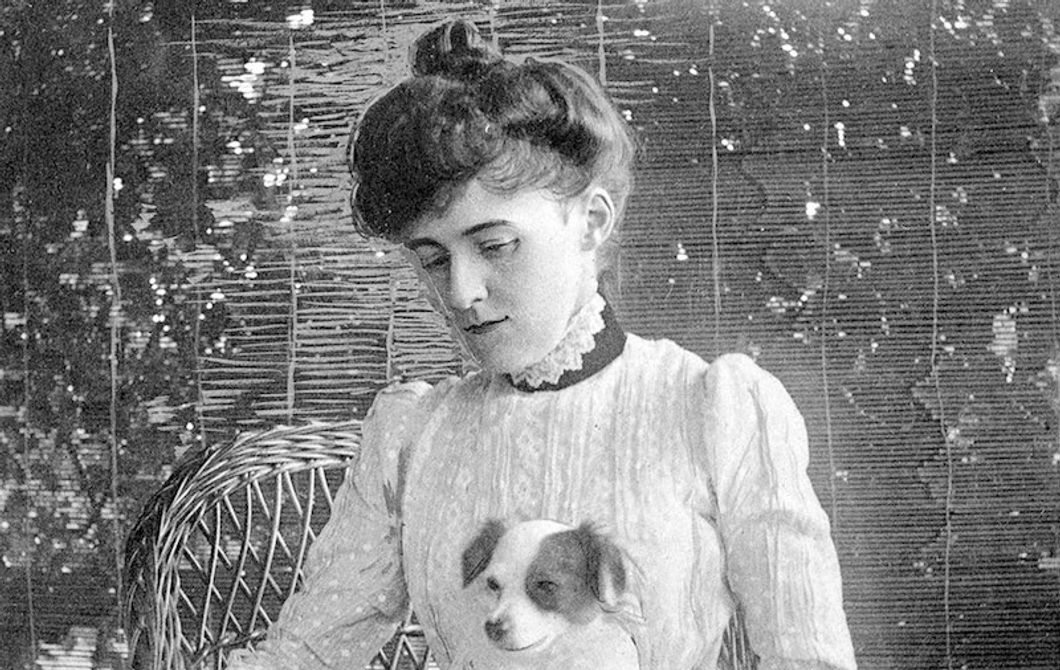From the time of America's inception as a country until the Gilded Age, much of the most memorable literature that survives bear the name of male authors -- many of whom have rightfully earned their place in those annals of memory and history. However, during this time period, women with literary aspirations were largely discouraged from writing, with the science of the time arguing that publishing, let alone reading literature, would drove the feminine psyche insane. As patriarchal as this era was, especially in the upper echelons of New York Society, the presence of strict social norms that denied those of the female gender any legitimate avenue of an agency, let alone the right to vote, failed to the deter the aspirations of Edith Wharton.
Publishing her first novel "The Valley of Decision" in 1902, Wharton broke into the highest circles of the literary scene three years with her critically acclaimed "The House of Mirth".
Going on to lead an illustrious career that spanned almost four decades, her renowned works including "Ethan Frome" and "The Custom of the Country" served as an inspiration for many younger writers at the time whose legacy continues to leave as deep an impact in the canon of American Literature as Wharton left herself. Writers such as F. Scott Fitzgerald, and Sinclair Lewis (a friend of Wharton's). However, in 1921, in the midst of alcohol-induced hysteria of The Jazz Age, Wharton not only surmounted the height of her literary tenure, but ascended into the halls of the timeless in history, becoming the first women to be awarded the Pulitzer Prize for a work that has become synonymous with her name -- "The Age of Innocence". A lasting role model for writers even today, especially for those of the feminine mold, here are five of the most memorable quotes from Edith Wharton:
1. “There are two ways of spreading light: to be The candle or the mirror that reflects it.”
A line delivered by Countess Olenska (Ella Mingott) in "The Age of Innocence", Wharton believed that one could exhibit decency by being a living example, or by following in it.
2. “Life is always either a tightrope or a feather bed. Give me the tightrope.”
It's an overspoken cliche if it isn't an outspoken one, but life is hard, and Edith Wharton certainly understood it better than most as a women growing up in a society highly policed by the machinations of men. Although it's perhaps easy to dismiss the author's persistence due to her wealthy upbringing, it is worth noting Wharton was nearly denied her Pulitzer in 1921. The board had originally planned to award the prize to Wharton's friend Sinclair Lewis, but thanks to Columbia University President Nicholas Murray Butler who intervened on Wharton's behalf, this ensured America's most esteemed prize literature went to who rightfully deserved it.
3. “The real loneliness is living among all these kind people who only ask one to pretend!”
Another segment of dialogue spoken by Countess Olenska in "The Age of Innocence", Wharton offers a critique on conformity which is even more relevant today with the drive to impress, and discover a sense of acceptance on social media, the author notes that the true value of friendship isn't the number of people you can surround yourself with or that like your Facebook post, but the ones with whom you a forge a sincere, lasting relationship. The kind of relationship that makes you forget about the numbers.
4. “Each time you happen to me all over again.”
Spoken by Newland Archer in his tragic quest to win over the heart of Ellen Mingott in "The Age of Innocence, Wharton believed that although we may never attain the love we seek, we never truly stop loving what was lost to us.
5. “Everything may be labelled- but everybody is not.”
As a product of Old New York Society, Wharton grew up among a cluster of people who derived a way of life by prescribing identities and roles that came by virtue of having such an identity. Nevertheless, Wharton had little love for this lifestyle, spending a vast majority of her time in Paris rather than in the country she was born in, returning only once to receive an honorary degree from Yale. Rejecting the notion of human dignity as prescribed by gender, skin color, and the size of one's bank account, Wharton, like many writers of her time, believed that resilience, courage, and compassion made up the true mettle of a human soul's worth.
Edith Wharton may be gone, but her example lives on. Through her words. Her books. Her voice. The first to echo for many that were silenced. And into the silence, were emptied many echoes. Voices. Filling books of their own with words unspoken until now. And now heard, as of today.



















